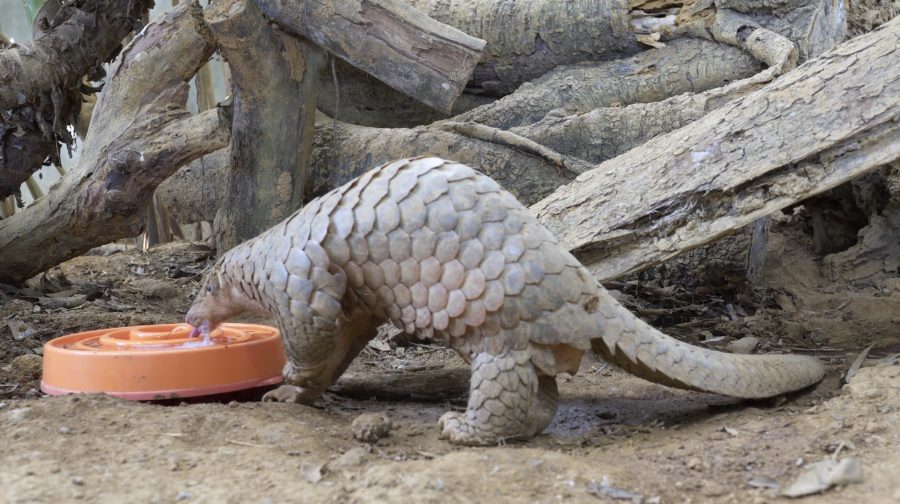World Pangolin Day takes place on 17 February. The plight of these magnificent small scaly anteaters is often dwarfed by the illegal trafficking of ivory, rhino horn and wild cats, but their existence is in danger.
The 8 species, 2 of which – the Sunda Pangolin and the Chinese Pangolin – are indigenous to Laos, have the unenviable title of the most trafficked mammal in the world. The pangolin’s ability to lash out with its tail when protecting itself from its natural predators, pales into insignificance when pitted against the forces of human exploitation.
The situation in Laos
Conservation and research on these animals began in Laos in 1987, when they were openly sold for $2, primarily for their ornamental scales, which continue to be used for bogus medicinal purposes and for their meat. Today, they retail on the black market for around $1,500. Pangolins are force-fed sand to increase their bodyweight when being sold by traffickers to restaurants and other traders.
Laos – as with other neighbouring countries in the region – is continually in the spotlight for its poor enforcement, lax customs controls, and limited capacity to bring perpetrators to justice. This small landlocked country has porous borders with Thailand, Cambodia, Vietnam, China and Myanmar. The Golden Triangle (where Thailand, China and Laos meet) is a haven for illicit activities; bear bile, tiger meat and a wealth of other endangered species are openly sold, often without permits, to voracious tourists and those who facilitate smuggling to larger neighbouring markets. With this in mind, and coupled with recent ivory bans in China and Hong Kong, the fear is that traffickers and consumers will increasingly look to do their business in – and through – Laos.
Conservation efforts
But all is not lost. Over the last two years, the Lao government has started making efforts to address the scourge of the Illegal Wildlife Trade. It has invited CITES (Convention on International Trade of Endangered Species of Wild Flora and Fauna) to conduct two field visits to Laos and is engaging on the follow-up recommendations. A new Penal Code – strengthening penalties for IWT involvement – is expected to be circulated very soon. Of course, much, much more needs to be done, and quickly. And law enforcement agencies need direction and training to crack down on the organised IWT networks – including improved cross-border cooperation – and prosecute offenders.
Fortunately, help is at hand from various technical advisors, customs experts and legal enforcement specialists seconded to Lao Ministries who are doing great work. My deputy met with senior staff from Wroclaw and Prague Zoos (see inset) on their recent visit to the capital – these officials had just received support from the Lao Government to establish a “Pangolarium” on a new site in Luang Prabang, slated to open this year. The primary purpose of this new venture is to receive large-scale confiscations (typically 100-150) and spend 2-4 weeks helping the creatures to recover, or rearing young pangolins whose mothers have died. They will then be released safely into their natural environments where they can dine on the 70 million insects they need per year. It is a great example of international collaboration, supported by the government.
Support from the British Embassy
In the British Embassy, we will continue our role in supporting the UK-funded IWT Challenge Fund and Darwin Initiative projects which involve pangolins and make our voice heard in the informal Wildlife Working Group. And I will continue to convey at the highest political level British Government concerns about Laos’ role as an IWT transit zone and to press for a senior delegation to attend the IWT Conference in London in October.
Like other species threatened by the illegal wildlife trade, the pangolin is a small and beautiful creature which should be cherished. Let’s make sure that in February 2019 we are celebrating its existence, and not commemorating it.

